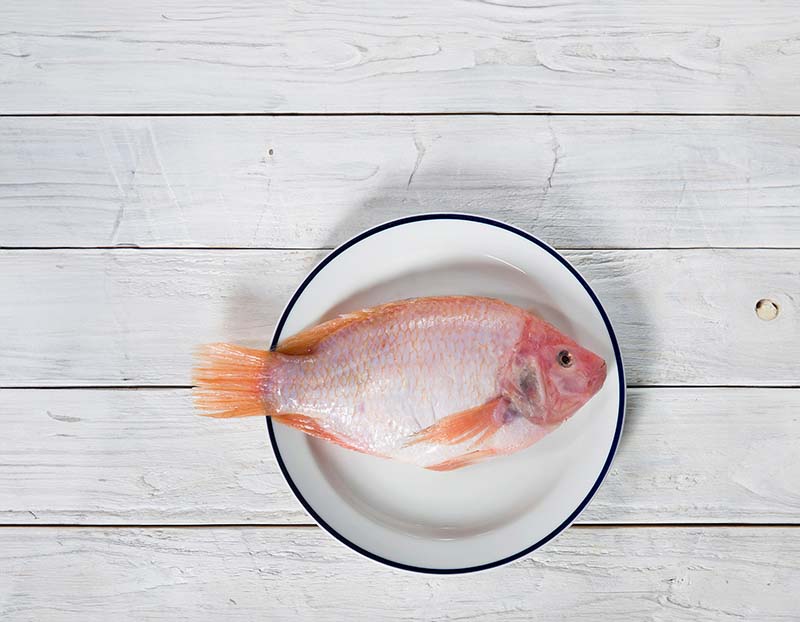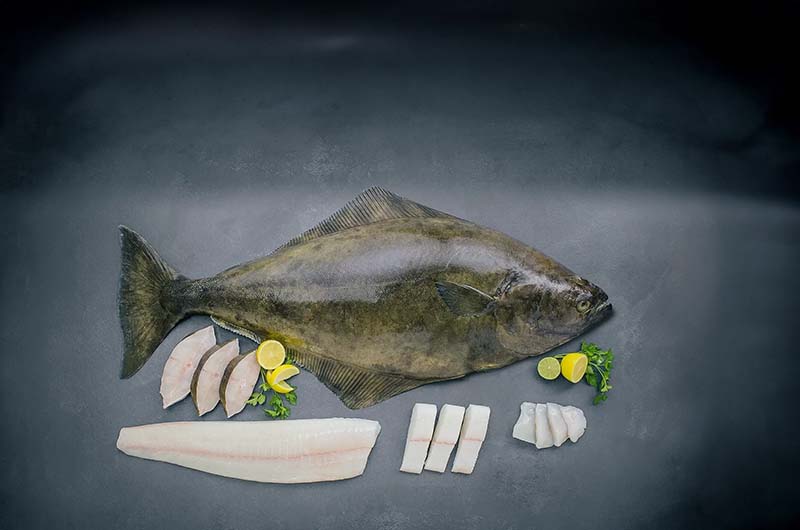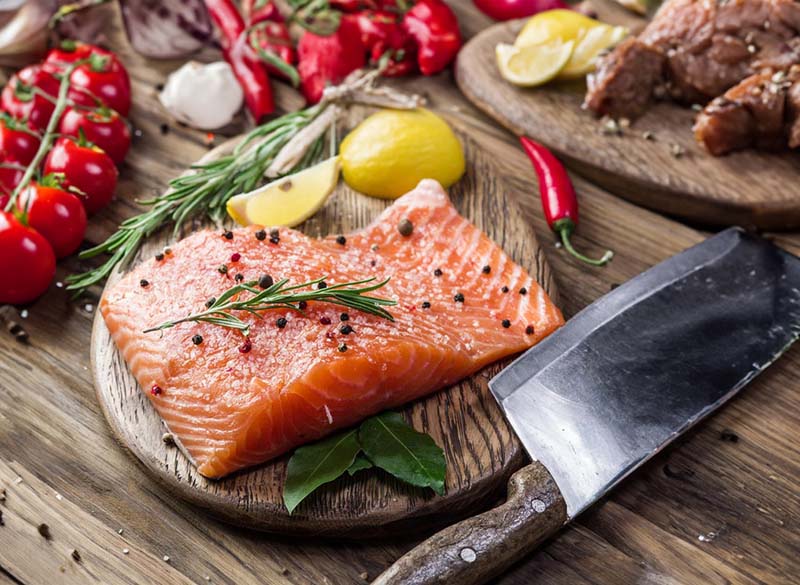Is White Fish Good for Weight Loss? White fish, renowned for its delicate texture and subtle flavor, is a staple in many wholesome dishes. Not only is it versatile and easy to cook, but it’s also rich in essential nutrients like protein, vitamin B12, and selenium.
Read on to discover the healthiest types of white fish and how they can enhance your diet.
1. Is White Fish Good for Weight Loss?
Certainly, white fish is an excellent choice for weight loss. It’s low in fat and calories yet high in protein, ideal for a healthy diet. Protein intake reduces hunger by lowering ghrelin levels, a hormone linked to appetite. White fish is also a source of crucial nutrients like omega-3 fats, vitamins B6, B3, phosphorus, selenium, iodine, and vitamin B12. These nutrients not only promote overall health but also aid in weight management. Including white fish in your diet can help you stay satiated, reduce cravings, and bolster your weight loss efforts.
Tip: Try grilling or baking your white fish and serve it with a bunch of veggies. This way, you’ll fill up on good stuff without loading up on calories.

2. What Are the Best White Fish for Weight Loss?
When looking to lose weight, the best white fish to consider include:
Tilapia
Often misunderstood, tilapia is a nutritious and budget-friendly option. It’s the fourth most consumed fish in the U.S., trailing only behind tuna, salmon, and pollock. Tilapia is packed with vitamin B-12, niacin, phosphorous, and potassium.
It’s mild and approachable, making it a favorite for those hesitant about seafood. Think of it as the “boneless, skinless chicken breast of the sea” due to its almost neutral flavor.

Yellowfin Tuna
High in protein and low in calories, yellowfin tuna aids weight loss by increasing metabolism and reducing appetite. It’s lean, low in fat and carbs, but remember, it’s also known for higher mercury levels, so consume it in moderation—ideally no more than once a week.

Halibut
This fish is not only delicious but also packed with health benefits. It’s a great source of phosphorus, selenium, magnesium, and vitamins B6 and B12. Vitamin B12, in particular, is associated with weight loss and reduced fat accumulation.

Cod
This is a wonderful fish to incorporate into your diet for various health benefits. Cod is high in protein, low in calories and fat, and rich in B vitamins, essential for numerous body functions including stress management and energy release from food.

Salmon
A fantastic source of lean protein, salmon is also rich in omega-3 fatty acids, vital for energy and keeping various body systems working smoothly. Omega-3s can boost metabolism and have anti-inflammatory properties, which may help with weight-related inflammation.
When incorporating these fish into your diet for weight loss, remember that how you prepare them matters. Steaming, grilling, and baking are healthier options than frying. Pair these fish with plenty of vegetables for a nutrient-rich, filling meal.

White Fish Health Benefits
Whitefish is popular not just because it tastes good, but also because it’s good for your health.
Strengthens Bones
More people are getting osteoporosis worldwide because of bad eating habits. This condition makes bones weak and easy to break and can even make people shorter as they get older. Whitefish is helpful because it’s full of phosphorus, a mineral that keeps bones strong and helps them heal. Eating whitefish often might help you avoid bone problems later in life, including osteoporosis.
Supports Cellular Health
Maintaining cell health is crucial for your overall well-being. Protein plays a fundamental role in how cells shape up and manage themselves. If your body doesn’t get enough protein, your cells won’t work right, leading to broader issues in your body’s organs and overall health. This can lead to anything from feeling unwell to serious health risks. That’s why protein is essential, and incorporating whitefish into your diet is beneficial as it’s a great source of protein.
Aids in Blood Production
White fish is a good source of vitamin B12, a nutrient important for keeping nerves healthy and making new red blood cells. People with conditions like anemia, where they lack enough healthy red blood cells, often need more vitamin B12. Eating whitefish can be a natural way to boost B12 levels and support the creation of these essential blood cells.
Combats Inflammation
Whitefish is full of Vitamin B6, which is really good at helping to calm swelling in the body. This is especially helpful for people who have swelling-related issues like asthma or arthritis. Eating foods like whitefish that have a lot of Vitamin B6 can help ease arthritis pain and cut down on asthma problems.
Boosts the Immune System
Whitefish is loaded with Vitamin B3, which is really good for your immune system. A good amount of B3 helps people get better from infections quicker, and it can even fight off serious infections. You might not face these big health threats often, but eating whitefish can help you beat the common cold faster.
Promotes a Healthy Pregnancy
Women lacking enough Vitamin B2 are more likely to have a miscarriage compared to those getting the right amount. Vitamin B2 is important for cleaning out old hormones in the liver and getting the body ready for pregnancy changes. Lots of whitefish, including Pacific Cod, are rich in Vitamin B2, so doctors often suggest that pregnant women eat more of this type of fish.
Contributes to Youthful Health
The nutrients in fish like Alaskan Pollock and Pacific Cod can help you maintain a youthful feel and appearance. These nutrients aid in cell renewal, a key factor in slowing down the aging process. Aging is often due to cells losing their ability to regenerate properly. By eating nutrient-rich whitefish, you’re supporting your cells’ health, helping them divide and renew effectively. This could help keep the signs of aging at bay for longer.
Maintains Optimal Cholesterol Levels
Whitefish is a smart choice for keeping LDL cholesterol low. If you’ve been warned about high LDL cholesterol, consider eating more whitefish like cod. High LDL cholesterol can lead to serious heart and blood vessel problems, including high blood pressure, heart disease, and heart attacks. By adding whitefish to your diet, you’re doing your hard-working heart a favor.
Enhances Brain Function
Whitefish is packed with nutrients that are great for your brain. They support the health of brain cells and help improve how your brain works. Key nutrients in whitefish aid in forming new pathways in your brain, enhancing basic brain functions and potentially making learning easier. When you learn new things, your brain builds these pathways to strengthen that knowledge or skill. Eating whitefish might make these processes more efficient, making it a brain-friendly food choice.
Conclusion
In conclusion, ‘Is White Fish Good for Weight Loss?’ is a question with a resounding yes. White fish stands out as a nutritious choice, low in calories and high in protein, making it ideal for those on a weight loss journey. Its versatility adds both flavor and variety to any diet, enhancing the joy of healthy eating.
We at HealthConnect are eager to hear your experiences. If you’ve included white fish in your diet or have other health-related stories, feel free to share them in the comments. Your unique journey might inspire others. Remember, for more tips on healthy living, our content is always here to guide you. Cheers to your health and discovering the pleasures of nutritious eating!
Source:
ncbi.nlm.nih.gov
mountsinai.org
ods.od.nih.gov
onlinelibrary.wiley.com
cdc.gov

Dr. Joyce Slater: Your Guide to Informed Health Choices
Dr. Joyce Slater shines as a distinguished expert in the field of nutrition and public health. Contributing her vast expertise to HealthConnectbc, she embodies a deep-seated passion for enhancing public well-being. As a respected figure in her field. Dr. Slater’s academic journey and professional achievements are nothing short of inspirational.
Holding a significant position as a researcher and educator, Dr. Slater has delved deeply into the intricacies of food literacy and nutritional science. Her work, prominently featured in numerous esteemed scientific publications, underscores her dedication to expanding our understanding of food’s role in health and society.
At the heart of Dr. Slater’s professional ethos is a profound desire to positively impact individual lives through education and research. She often says, “Empowering people with the knowledge to make healthier choices is the most rewarding aspect of my work.” This principle is the cornerstone of her involvement with HealthConnectbc, where she strives to provide reliable and practical health advice.
Dr. Slater’s contributions to HealthConnectbc are multifaceted: academically, she offers insights into the complex world of nutrition and health, enhancing both public understanding and professional practices. Additionally, she is instrumental in guiding and inspiring the next generation of health professionals, thus fostering future excellence in the field.
Juggling rigorous research with her educational duties, Dr. Slater demonstrates an unwavering commitment to her profession. Her approachable nature and genuine concern transcend the confines of academia, touching the lives of everyone she interacts with. Dr. Slater looks forward to continuing her journey of discovery and education, dedicated to the ongoing improvement of public health and nutrition.
At HealthConnectbc, Dr. J. Slater is not just a contributor; she is a guiding light, dedicated to enlightening and motivating individuals towards a healthier and more informed lifestyle.
PUBLISHED ARTICLES
- Food literacy competencies: A conceptual framework for youth transitioning to adulthood (2018)
- Self-perceived eating habits and food skills of Canadians (2016)
- Challenges to acquiring and utilizing food literacy: Perceptions of young Canadian adults (2016)
- Socio-demographic and geographic analysis of overweight and obesity in Canadian adults (2009)
- Sustainable well-being: Concepts, issues, and educational practices (2014)

